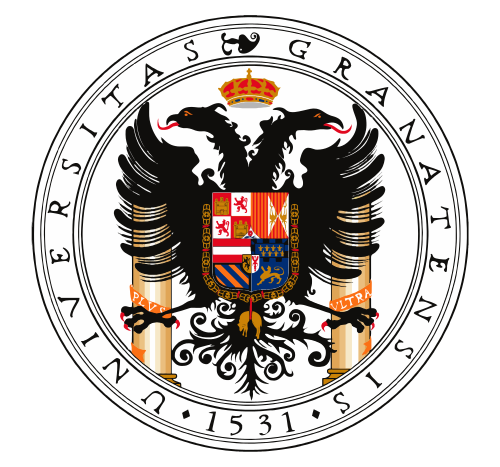Universidad de Granada (UGR) - Spain
 UGR was founded in 1531. As a classical university with around 70,000 students, 3,600 lecturers, 1,900 admin. and support staff, the UGR offers a wide range of courses at undergraduate and postgraduate level. Every year over 4,800 international graduate and postgraduate students choose the UGR to take full study programmes or via the approximately 800 network and bilateral exchange agreements in which the UGR is involved.
UGR was founded in 1531. As a classical university with around 70,000 students, 3,600 lecturers, 1,900 admin. and support staff, the UGR offers a wide range of courses at undergraduate and postgraduate level. Every year over 4,800 international graduate and postgraduate students choose the UGR to take full study programmes or via the approximately 800 network and bilateral exchange agreements in which the UGR is involved.
The UGR is the leading European university in number of Erasmus students received, and in 2007, received the Erasmus Gold Star Award in recognition of its contribution to the programme. Additionally, the UGR is a full member of numerous international networks and associations such as the Coimbra Group, UNIMED, EUA, IAU, EAIE, AUIP, AIEA, etc. The University has a long tradition of engaging with community improving, environmental volunteering and intercultural studies associated with sustainability.
Mission and Objectives: the UGR is a public higher education institution. The UGR is committed not only to quality and excellence in education, learning and research but also to activities targeting the transfer of scientific, technical and artistic knowledge to society, the betterment of society and a sustainable environment. As a modern university with a long-standing tradition, the UGR strives for improved and increasing outreach and the promotion of strong links with its local and regional context. Respect for the dignity of individuals, freedom of thought and expression, justice, equality, sustainability, solidarity and eradication of discrimination are among the main values of the UGR. Due to its long-standing tradition, geographical location and high standards, both in teaching and research, the UGR regards internationalization as one of its strategic aims.
Main Projects / Activities: the main activities of the UGR are related to higher education, learning and research in a very broad sense. Its more than 100 departments carry out high quality research and teaching activities at all levels. Furthermore, central services for students, research equipment, continuing education, summer schools, language training, transfer of knowledge, work placements, etc. are available for all the members of its academic community. The UGR is involved in a vast number of national and international projects financed through different programmes such as FP7, LLP, Erasmus Mundus, Tempus, Alfa, Interreg, etc.
Sustainability: the UGR has different programmes focused in greening carriers, sustainability management, and environmental volunteering programmes.
Role of UGR in the project:
- Contribute to the mapping exercise in Spain.
- Assist in the development of an online platform of resources as well as get familiarised and review the online tool.
- Contribute to the bi-annual newsletters.
- Provide feedback to the Monitoring and Evaluation (M&E) framework.
- Contribute to the dissemination and exploitation of the project outputs, outcomes and future network activities.
- Participate and actively contribute to the discussions generated in regional and annual meetings, seminars and conference.
Operational and financial management:
- The project team will coordinate the above administrative and academic project activities.
- Financial administration will be handled by project team who will liaise internally with the institution’s finance department.


